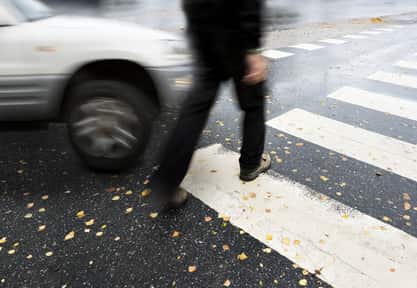In contrast to the many Senate and House Bills before the West Virginia State Judiciary Committee in this 2017 Legislative Session that threaten to undermine the legal rights of every West Virginian, there are clarifications and additions that we can agree with inHouse Bill 2099as introduced by Delegate McGeehan to the Committee on the Judiciary.
The purpose of this bill is to define the act of leaving the scene of a crash involving death or serious bodily injury as a felony.The bill also establishes certain presumptions of knowledge based on the circumstances of a vehicle crash.
This bill to amend Erin’s Law, which relates to crashes involving death or personal injuries; creating acrime of knowingly leaving thescene of a crash resulting in serious bodily injury; establishing apresumption of knowledge based upon crash conditions; and providing criminal penalties.

Proposed Changes to Erin’s Law
- Any person knowingly leaving the scene of an accident after being involved in a crash resulting in serious bodily injury or death within one year to any personis guilty of afelony.
- Hit and Run collision causing serious bodily injury will result in 1-3 years imprisonment and up to a $2500 fine.
- Hit and Run collision causing death will result in 1-5 years imprisonment and up to a $5000 fine.
- The driver’s license or permit or operating privilege to drive of any resident or nonresident person convicted pursuant to the provisions of this section for a period of one year from the date of conviction or the date of release from incarceration, whichever is later.
┬º17C-4-1. Crashes involving death or personal injuries; Erin’s Law.
(a) The driver of any vehicle involved in a crash resulting in injury to or death of any person shall immediately stop the vehicle at the scene of the crash or as close to the scene as possible and return to and remain at the scene of the crash until he or she has complied with the requirements of section three of this article:Provided,that the driver may leave the scene of the crash as may reasonably be necessary for the purpose of rendering assistance to an injured person as required by section three of this article. The stop shall be made without obstructing traffic more than is necessary.
(b) Any person knowingly violating the provisions of subsection (a) of this section after being involved in a crash resulting in the death of any person is guilty of a felony and, upon conviction, shall be fined by not more than $5,000, or imprisoned in a correctional facility for not less than one year nor more than five years, or both fined and imprisoned.
(c) Any person knowingly violating subsection (a) of this section after being involved in a crash resulting in serious bodily injury to any personis guilty of a felonyand, upon conviction, shall be imprisoned in a correctional facility for not less than one year nor more than three years, fined not more than $2,500, or both fined and imprisoned.
(d) Any person knowingly violating the provisions of subsection (a) of this section after being involved in a crash resulting in physical injury to any person is guilty of a misdemeanor and, upon conviction thereof, shall be punished by confinement in jail for not more than one year, or fined not more than $1,000, or both.
(e) For purposes of this article, a driver of a vehicle involved in a crash is presumed to know that death or serious bodily injury was a likely result of the crash under any of the following circumstances:
(1) The crash involves a pedestrian or rider of an animal or nonmotorized bicycle and that person is unable to stand immediately after the crash;
(2) The crash results in the ejection of a passenger from any vehicle involved in the crash;
(3) The crash damage to another vehicle would prevent an occupant of that vehicle from exiting the vehicle without assistance;
(4) The crash damage to another vehicle caused a portion of the vehicle frame or body to intrude into the passenger area of the vehicle; or
(5) The crash caused another vehicle to leave the roadway to the extent that the vehicle was not visible from the roadway after coming to rest.
(f) The commissioner shall revoke the license or permit or operating privilege to drive of any resident or nonresident person convicted pursuant to the provisions of this section for a period of one year from the date of conviction or the date of release from incarceration, whichever is later.
(g) This section may be known and cited as “Erin’s Law”.
Jeffery Robinette was admitted to practice law in 1991 and is licensed in all levels of state and federal trial courts in West Virginia. Mr. Robinette is also licensed in all state and federal appeals courts in West Virginia and the United States Supreme Court. As a National Board Certified Trial Attorney who has handled hundreds of motor vehicle, injury, and construction defect claims and a leading author on insurance claims settlement issues and difficulties in West Virginia, Jeff Robinette is uniquely qualified to represent your best interest.




